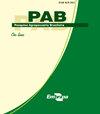Genetic cause and effect interrelationships for grain quality attributes of irrigated rice
IF 0.7
4区 农林科学
Q3 AGRICULTURE, MULTIDISCIPLINARY
引用次数: 0
Abstract
Abstract The objective of this work was to determine the genetic correlations and the direct and indirect associations of agronomic traits and grain quality attributes with the percentage of whole grains in flood irrigated rice. The experiment was carried out in two environments, in a randomized complete block design with three replicates, using 23 irrigated rice genotypes. The evaluated traits were: percentage of whole grains, caryopsis length, caryopsis width, panicle length, panicle weight, 1,000 grain weight, days to flowering, percentage of chalky grains with white belly, total chalky area, total whiteness, vitreous whiteness, and defects in coloring. The percentage of grains with white belly and total chalky area were positively correlated, whereas the percentage of grains with white belly and vitreous whiteness were negatively correlated. The traits caryopsis width, percentage of chalky grains with white belly, panicle weight, and 1,000 grain weight showed indirect effects on whole-grain yield response according to total chalky area and total whiteness. Total chalky area and total whiteness are the factors that most negatively influence the percentage of whole grains according to the genotypic correlations and direct effects.灌稻籽粒品质性状的遗传因果关系
摘要本研究旨在探讨水煮水稻农艺性状和籽粒品质性状与全粒率的遗传相关关系及直接和间接关联。试验采用23个灌溉水稻基因型,在2种环境下,采用3个重复的随机完全区组设计。评价性状为:全粒率、颖果长度、颖果宽度、穗长、穗重、千粒重、开花天数、白腹白垩粒百分比、总白垩面积、总白度、玻璃白度和着色缺陷。白腹粒率与总白垩面积呈显著正相关,而白腹粒率与玻璃体白度呈显著负相关。颖果宽度、白腹白垩粒百分比、穗重和千粒重等性状对全粒产量的响应均有间接影响。从基因型相关性和直接效应来看,总白垩面积和总白度是对全粒率影响最大的因子。
本文章由计算机程序翻译,如有差异,请以英文原文为准。
求助全文
约1分钟内获得全文
求助全文
来源期刊

Pesquisa Agropecuaria Brasileira
农林科学-农业综合
CiteScore
1.20
自引率
0.00%
发文量
45
审稿时长
9-18 weeks
期刊介绍:
Pesquisa Agropecuária Brasileira – PAB – is issued monthly by Empresa Brasileira de Pesquisa Agropecuária – EMBRAPA, affiliated to Ministry of Agriculture, Livestock and Food Supply. PAB publishes original scientific-technological articles on Plant Physiology, Plant Pathology, Crop Science, Genetics, Soil Science, Food Technology and Animal Science.
Its abbreviated title is Pesq. agropec. bras., and it should be used in bibliographies, footnotes, references and bibliographic strips.
 求助内容:
求助内容: 应助结果提醒方式:
应助结果提醒方式:


